1. Overview
Moussa Sissoko, born on August 16, 1989, in Le Blanc-Mesnil, France, is a French professional footballer who primarily plays as a versatile midfielder. Known for his powerful, box-to-box style of play, Sissoko has established himself as a physically dominant and energetic presence in the center of the pitch, capable of performing in various midfield roles including defensive, central, attacking, or even as a right winger or full-back. He began his football journey in local youth clubs in the Île-de-France region before joining Toulouse FC in 2002, where he developed for four years in their academy and made his professional debut in the 2007-08 season, including his UEFA Champions League debut.
Sissoko gained significant prominence during his tenure with Toulouse, where he evolved into a key player, contributing to the club's league and cup campaigns and helping them qualify for the UEFA Europa League. His performances attracted interest from major European clubs. In 2013, he moved to Premier League club Newcastle United FC, where he made an immediate impact, showcasing his leadership qualities even during the team's relegation period. He then transferred to Tottenham Hotspur FC in 2016, where he experienced a challenging start but gradually became an indispensable member of the squad, notably featuring in the 2019 UEFA Champions League Final. After departing Tottenham in 2021, he had spells at Watford FC and FC Nantes, eventually returning to Watford in 2024.
Internationally, Sissoko represented France at various youth levels before making his senior international debut in 2009. He was a member of the French squad for the 2014 FIFA World Cup, where he scored his first international goal, and played a crucial role in France's run to the final of UEFA Euro 2016.
2. Early Life and Youth Career
2.1. Early Life and Background
Moussa Sissoko was born on August 16, 1989, in Le Blanc-Mesnil, a Parisian suburb, to Malian parents. His father worked as a construction worker, and his mother was a housewife. Sissoko is the eldest of four children, with three younger sisters. From a very young age, he was drawn to football, recognizing its potential to offer him a better life. He stated, "I quickly realised that football could lead me to have a better life." This early understanding fueled his ambition to pursue a career in the sport.
2.2. Youth Career at Clubs
At the age of six, Sissoko joined the youth academy of Espérance Aulnay, a club located in nearby Aulnay-sous-Bois, a suburb in northeastern Paris. He trained three times a week under the guidance of his trainer, Adama Dieye, whom Sissoko considers a pivotal mentor, crediting him by stating, "I am here today because of him." In July 1999, Sissoko moved to Saint-Ouen to join Red Star FC. He spent two years at Red Star, where he was teammates with future France youth international Yannis Salibur. In September 2001, he returned to Espérance Aulnay for an additional two years of development, further honing his skills before seeking an opportunity with a professional club.
In July 2003, Sissoko moved south to the Haute-Garonne department to sign an "aspirant" (youth) contract with professional club Toulouse FC. He was initially placed in the club's under-14 team. Sissoko dedicated three years to developing within Toulouse's youth academy, training alongside future teammates like Cheikh M'Bengue and Étienne Capoue. By the 2006-07 season, he earned a call-up to the club's reserve team in the Championnat de France amateur, the fourth tier of French football. During this amateur season, Sissoko appeared in 18 matches, quickly becoming one of the club's most promising prospects. Before signing his first professional contract with Toulouse, he attracted considerable interest from English clubs such as Liverpool and Bolton Wanderers.
3. Club Career
Moussa Sissoko's professional club career began with Toulouse FC, where he transitioned from a promising youth player to a key midfielder. His journey continued through the competitive leagues of England with Newcastle United and Tottenham Hotspur, before moving to Watford and Nantes, showcasing his adaptability and consistent performance across different footballing environments.
3.1. Toulouse
3.1.1. 2003-2008
Midway through the 2006-07 season, Moussa Sissoko officially signed his first professional contract with Toulouse, agreeing to a three-year deal that would last until June 2010. Following this, he was promoted to the club's senior team in the subsequent summer and was assigned the number 22 shirt by manager Elie Baup.
Sissoko made his professional debut on August 4, 2007, coming on as a substitute in a 3-1 away defeat against Valenciennes. The following week, he made his first professional start in a notable 1-0 upset victory over defending champions Lyon. On August 15, he featured in the club's UEFA Champions League third qualifying round first leg match against Liverpool FC. He entered the game as a substitute for Albin Ebondo in the 83rd minute and received a yellow card in the final minute. Toulouse lost the first leg 1-0 and were eliminated from the tie with a 5-0 aggregate defeat.
Sissoko scored his first professional goal on September 1, 2007, in a 2-0 victory over Auxerre, netting in injury time just two minutes after entering the match as a substitute. By late September, he became a regular starter, playing in a defensive midfielder role alongside attackers Achille Emana and Fodé Mansaré, and captain Nicolas Dieuze. On January 6, 2008, he scored his second goal of the season against Paris FC in the Coupe de France, though Toulouse surprisingly lost the match 2-1 to the semi-professional club. Despite Sissoko's individually promising season, Toulouse finished just one place above the relegation zone, leading to Baup's dismissal and replacement by Alain Casanova. Following the season, on July 25, 2008, Sissoko signed a contract extension with the club, committing him until 2012.
3.1.2. 2008-2013
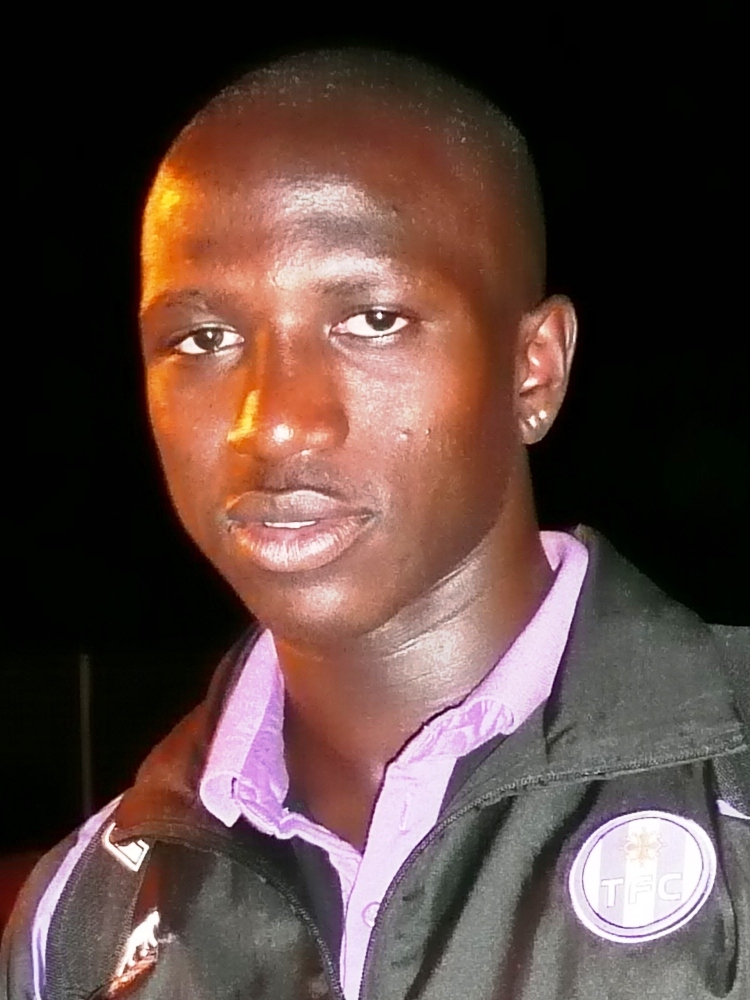
Following Achille Emana's departure to Spain, manager Alain Casanova repositioned Sissoko into a box-to-box midfielder role for the 2008-09 season. This adjustment was made to integrate emerging defensive midfielder Étienne Capoue and new signing Étienne Didot into the starting lineup. This new role allowed Sissoko to maintain his defensive responsibilities while also highlighting his attacking abilities. He initially featured primarily as a substitute under Casanova but by December had become a regular in the starting eleven.
On January 24, 2009, Sissoko scored his first goal of the season in an 8-0 rout of amateur Alsatian club Schirrhein in the Coupe de France. His goal was particularly memorable, as he ran nearly the entire length of the pitch with the ball, evading several Schirrhein players, before finishing from close range. Toulouse reached the semi-finals of the competition before being defeated 2-1 by eventual winners Guingamp. In the league, Sissoko was a crucial contributor, helping a revamped Toulouse side finish 4th, securing qualification for the newly established UEFA Europa League. He scored his first league goal of the campaign on February 7 in a 2-0 victory over Le Mans FC. Sissoko also found the net in victories against Derby de la Garonne rivals Bordeaux and Paris Saint-Germain. In total, he made 40 appearances and scored five goals that season. For his strong performances, he was nominated for the UNFP Young Player of the Year award, alongside teammate Capoue.
Before the 2009-10 season, Sissoko attracted significant interest from Premier League club Tottenham Hotspur FC. Reports indicated an initial offer of 12.00 M GBP for the player, which was later increased to 15.50 M GBP. However, Toulouse president Olivier Sadran publicly stated that Sissoko would not be sold. Despite Sadran's declaration, other prominent clubs such as Manchester City, Italian giants Internazionale and Juventus, and German club Bayern Munich were also linked with Sissoko. To definitively end the transfer speculation, Sadran announced that Sissoko would not leave the club for anything less than 30.00 M EUR.
Sissoko started the 2009-10 campaign impressively, scoring six league goals in the club's first 12 matches. He opened his goal-scoring account in the club's second league match of the season, a 3-1 victory over AS Saint-Étienne. On September 20, 2009, he scored in a 2-0 win against Le Mans and, the following week, scored the opening goal in a 2-1 loss to Lyon. On October 1, 2009, Sissoko scored his first career European goal in a UEFA Europa League group stage match against Belgian club Club Brugge, which ended in a 2-2 draw. On October 24, Sissoko netted his fourth league goal of the season in a 2-0 away victory over Lens. In the subsequent two weeks, he scored both openers in a 1-1 draw with Marseille and a 3-2 home victory against Rennes. Sissoko's goal-scoring rate slowed in the latter part of the season, with only one goal after the winter break, scored against Valenciennes in a 3-1 win. He remained a regular in the team for the remainder of the season, but Toulouse ultimately finished a disappointing 14th in the league.
Despite continued interest from several clubs, Sissoko chose to remain at Toulouse, expressing his contentment with the club and entrusting his agent to manage any transfer situations. He scored his first goal of the 2010-11 season on September 22, 2010, in a 2-1 defeat to Boulogne-sur-Mer in the Coupe de la Ligue. On February 6, 2011, Sissoko scored both of Toulouse's goals in a 2-0 victory over Monaco.
3.2. Newcastle United

On January 21, 2013, English club Newcastle United confirmed the signing of Moussa Sissoko on a six-and-a-half-year deal for an undisclosed fee, widely reported to be around 1.50 M GBP. It was rumored that Sissoko waived any signing-on fee from Newcastle to facilitate the move, as Toulouse had initially been unwilling to release him until his contract expired in the summer. Upon joining, he was assigned the number 7 shirt.
Sissoko made his debut for Newcastle on January 29, immediately making an impact by assisting the opening goal in a 2-1 away win against Aston Villa. In his second match, which was his first at St James' Park, Sissoko scored both the equalizing and winning goals in a dramatic 3-2 comeback victory against Chelsea. On February 24, he scored again in a 4-2 home win against Southampton.
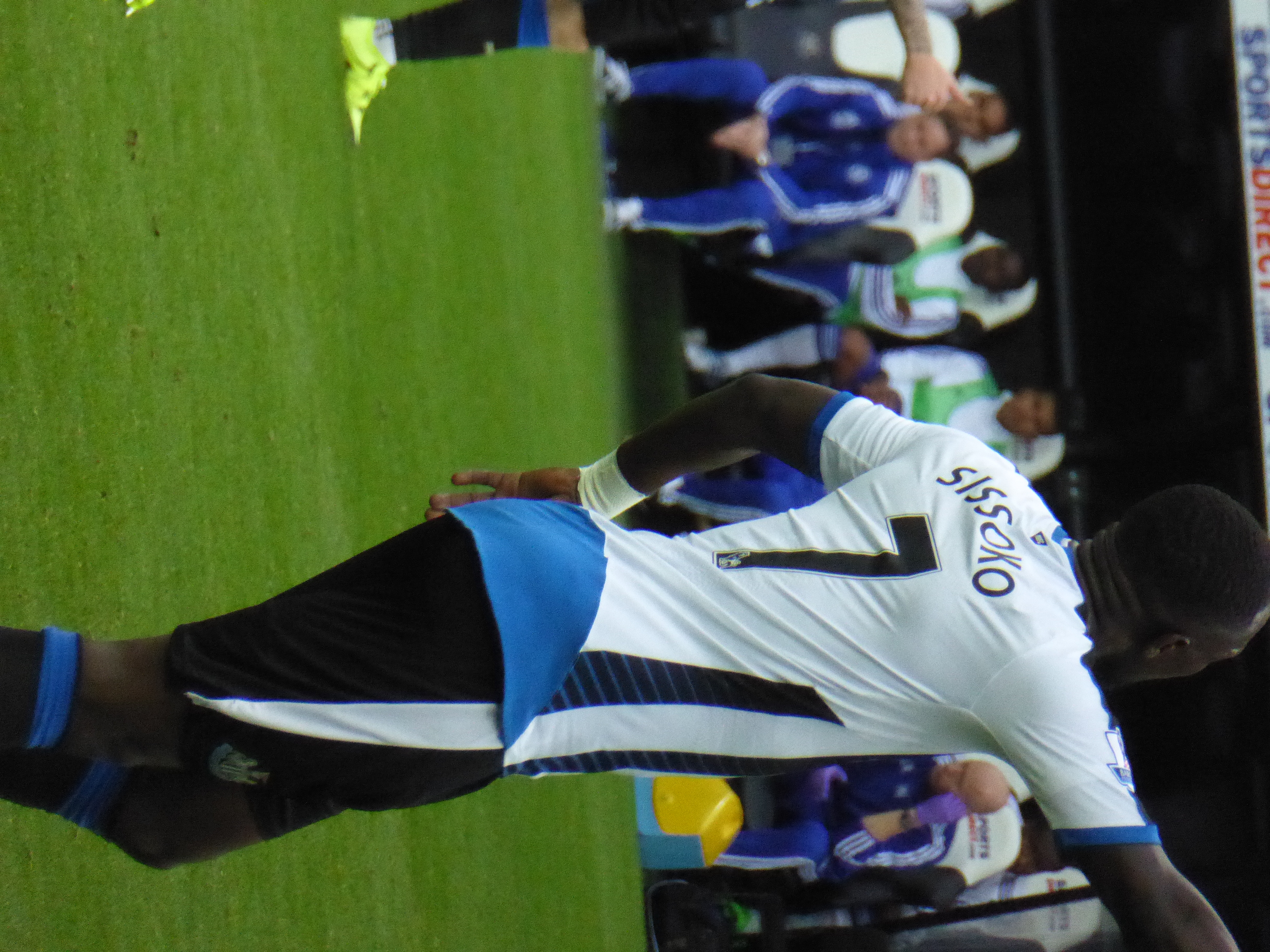
Sissoko's first goal of the 2013-14 season came on November 30, a 25-yard strike against West Bromwich Albion that made the score 2-1. In the closing minutes of a December game against Southampton, he was involved in an accidental incident where he hit referee Mike Jones in the face while trying to pull away from an opposing goalkeeper. In March 2014, Sissoko delivered an "utterly superb" performance, as described by Neil Cameron of the Evening Chronicle, scoring twice in a 4-1 away win at Hull City.
In the 2014-15 season, Sissoko was given the captain's armband after Fabricio Coloccini sustained an injury. In his first match starting as captain, Sissoko scored his first league goal of the season in a 1-0 victory over Queens Park Rangers. On November 29, 2014, Sissoko received two yellow cards within 45 seconds, leading to his dismissal in a 1-0 away defeat to West Ham United. On January 1, 2015, he scored his second league goal of the season as Newcastle drew 3-3 against Burnley. On April 13, 2015, Sissoko was sent off in an away match at Liverpool FC, receiving a second yellow card from referee Lee Mason for a dangerous tackle on Lucas Leiva. On May 24, 2015, the final day of the season, he scored the opening goal in a 2-0 home victory over West Ham United, a result that secured Newcastle's Premier League safety.
During the 2015-16 season, Sissoko was appointed captain for the final six games. In his first match as captain on April 16, 2016, he scored his only goal of the campaign in a 3-0 home win against Swansea City. This goal initiated a six-game unbeaten run for Newcastle in their battle against relegation, which included commendable draws against Liverpool and Manchester City, and a decisive 5-1 victory over Tottenham Hotspur on the final day. Despite this strong finish, Newcastle were unable to escape the drop zone and were relegated to the Championship.
3.3. Tottenham Hotspur
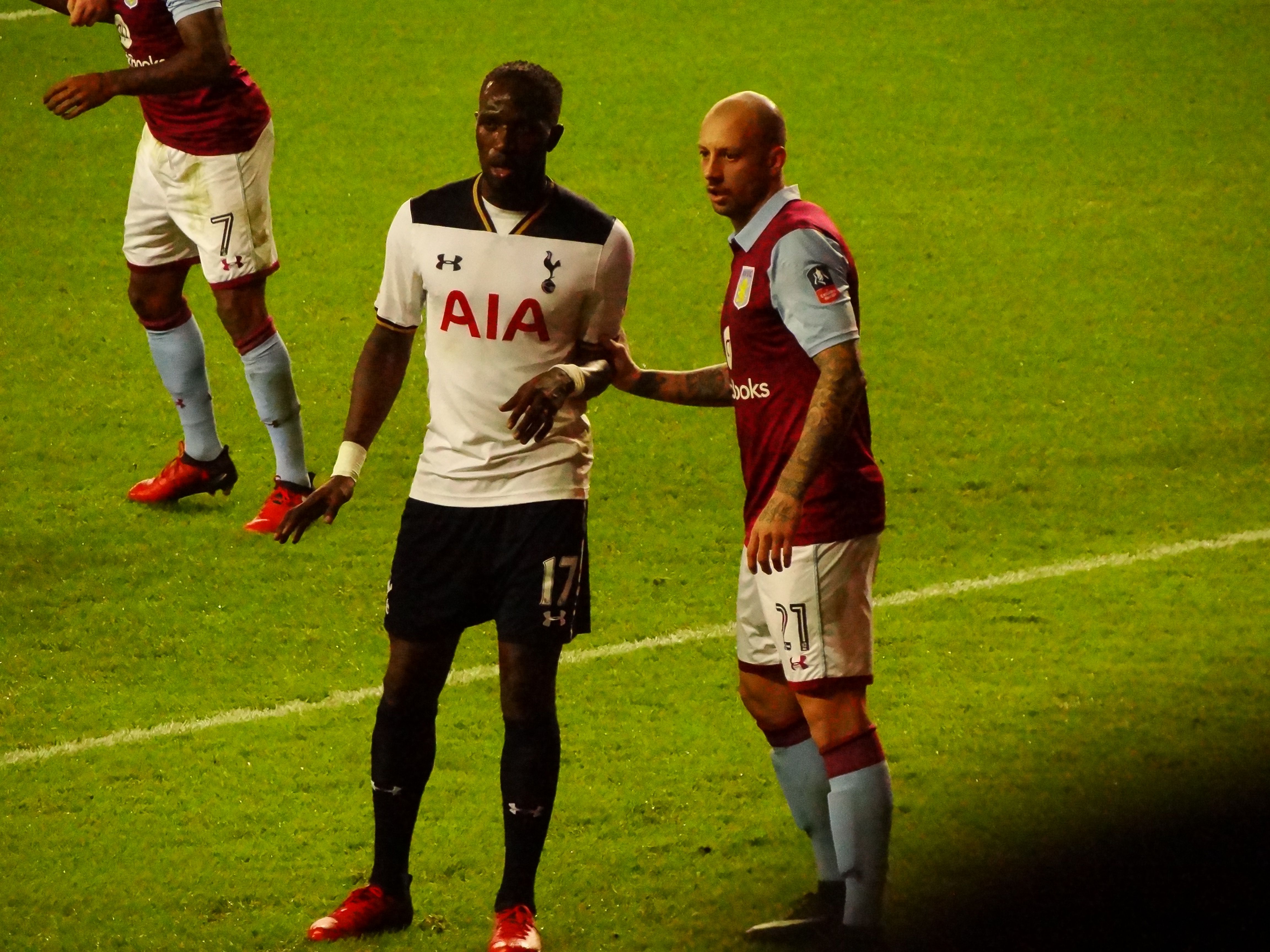
On August 31, 2016, Moussa Sissoko signed a five-year deal with Tottenham Hotspur for 30.00 M GBP. Tottenham secured his signature on the final day of the transfer deadline, beating out Everton. He made his debut for the club on September 10, 2016, in a 4-0 away victory against Stoke City, coming on as a substitute for Christian Eriksen in the 78th minute and receiving a yellow card in the 90th minute. On October 22, in a match against Bournemouth, Sissoko elbowed Harry Arter, leading to a three-match ban. He did not play another league match for Spurs until December 3 and made only four more starts in the Premier League that season under manager Mauricio Pochettino, marking a disappointing first season.
Following his initial challenging period, Sissoko was given an extended run in the first team at the beginning of the 2017-18 season due to multiple midfield injuries within the squad. He earned his fourth start in six Premier League games in a 3-2 win at West Ham on September 23, with Pochettino praising his "fantastic" performance. On September 30, 2017, he scored his first goal for Tottenham in their 4-0 victory over Huddersfield Town.
In the 2018-19 season, Sissoko emerged as a crucial and integral member of Tottenham's squad, making 43 appearances across all competitions. His partnership with Harry Winks in central midfield became vital, showcasing a significant improvement in his overall game. On November 29, 2018, Sissoko's powerful solo run created an opportunity that led to Dele Alli assisting Christian Eriksen for the decisive goal in a 1-0 victory over Inter Milan, helping Tottenham progress to the UEFA Champions League knockout stages. In May 2019, he was recognized for his contributions by winning the inaugural Tottenham Hotspur Legends' Player of the Season award.
In the final of the 2018-19 UEFA Champions League against Liverpool, Sissoko was involved in a controversial incident early in the match when his raised arm blocked a cross from Liverpool's Sadio Mane. This was judged a handball, resulting in a penalty that Mohamed Salah converted. Tottenham ultimately lost the match 2-0.
In the 2019-20 season, under new manager José Mourinho, Sissoko scored his first goal in over two years in a game against Bournemouth, which was only his second Premier League goal for Tottenham and contributed to a 3-2 win. On New Year's Day 2020, in a match against Southampton, Sissoko sustained a medial collateral ligament injury in his right knee, which required surgery and sidelined him for more than three months. However, due to the COVID-19 pandemic and the subsequent suspension of league matches, he did not miss as many games as initially expected, returning for the June 19 match against Manchester United after the season restarted.
On January 5, 2021, Sissoko scored his first goal of the 2020-21 season in the semi-final of the Carabao Cup, contributing to a 2-0 home win over Brentford.
3.4. Watford
On August 27, 2021, Moussa Sissoko joined Watford on a two-year contract for a reported fee of approximately 3.00 M GBP. He made his debut two days later on August 29 in a 1-0 away defeat against his former club, Tottenham Hotspur. In this match, Sissoko was active from the first minute, providing a pass to Juraj Kucka whose shot was headed away by Eric Dier in a dramatic early play. Sissoko played for 70 minutes and received a yellow card in the 54th minute. His first stint at Watford proved challenging, as the club was relegated from the Premier League that season, with their fate sealed on May 7, 2022, after failing to beat Crystal Palace. Despite the team's relegation, Sissoko scored two goals in 36 league appearances during the 2021-22 season.
3.5. Nantes
On July 1, 2022, Sissoko returned to French football, signing a two-year contract with Ligue 1 club Nantes for a transfer fee of 1.80 M GBP. He quickly integrated into the team, making 30 league appearances and scoring two goals in the 2022-23 season. He also contributed to Nantes' run to the Coupe de France final, where they finished as runners-up. In the 2023-24 season, he made 26 league appearances for Nantes.
3.6. Return to Watford
On July 10, 2024, Sissoko made a return to England, rejoining Championship side Watford on a two-year deal. He has since made 30 appearances for the club in the 2024-25 season, scoring two goals.
4. International Career
Moussa Sissoko has had a distinguished international career, representing France at multiple youth levels before becoming a consistent presence in the senior national team, participating in major tournaments.
4.1. Youth National Teams
Sissoko actively participated in the French youth national team system, representing France at every age level for which he was eligible. He made his youth international debut on January 4, 2005, for the under-16 team in a friendly match against Turkey in Manisa, which France won 3-0. His only other appearance with the U16 team came two days later in the return leg against Turkey in İzmir.
With the under-17 team, Sissoko's playing time increased as France sought to qualify for the 2006 UEFA European Under-17 Football Championship. He debuted as a substitute on November 2, 2005, in the team's opening competitive match against England. On February 26, 2006, Sissoko scored his first youth international goal in the team's second group stage match of the Algarve Cup against the Netherlands. In the subsequent group stage match against Portugal, Sissoko scored again in a 3-1 victory, helping France win the tournament. Despite these efforts, Sissoko and the U17 team, which included players like David N'Gog, Gabriel Obertan, Adel Taarabt, and Grégory Sertic, failed to qualify for the 2006 UEFA European Under-17 Football Championship after finishing second in the Elite Round.
For the under-18 team, Sissoko appeared in all eight matches the team contested. France remained largely undefeated at this level, with their only loss being a 1-0 defeat to Germany in Kehl. Due to his increased domestic playing time with Toulouse, Sissoko missed the 2007 Sendai Cup in Japan and several other under-19 tournaments. He primarily featured in 2008 UEFA U-19 Championship qualification matches. He made his debut on October 28, 2007, in a 5-0 victory over Luxembourg in the first qualifying round. Similar to the U17 competition, France was eliminated in the Elite Round of the U19 Championship.
Sissoko received his first call-up to the under-21 team for their friendly match against Bosnia and Herzegovina on September 9, 2008, where he made his debut in a 1-0 French victory. Sissoko scored his only goal with the U21 team on March 31, 2009, in a 2-0 win over England at the City Ground in Nottingham. He was a frequent presence in the U21 squad during their unsuccessful attempt to qualify for the 2011 UEFA European Under-21 Football Championship. While the team's failure to qualify effectively ended his competitive U21 career, he still appeared in friendly matches against Turkey, Denmark, and Russia in 2010 as he was still eligible for non-competitive fixtures.
4.2. Senior National Team
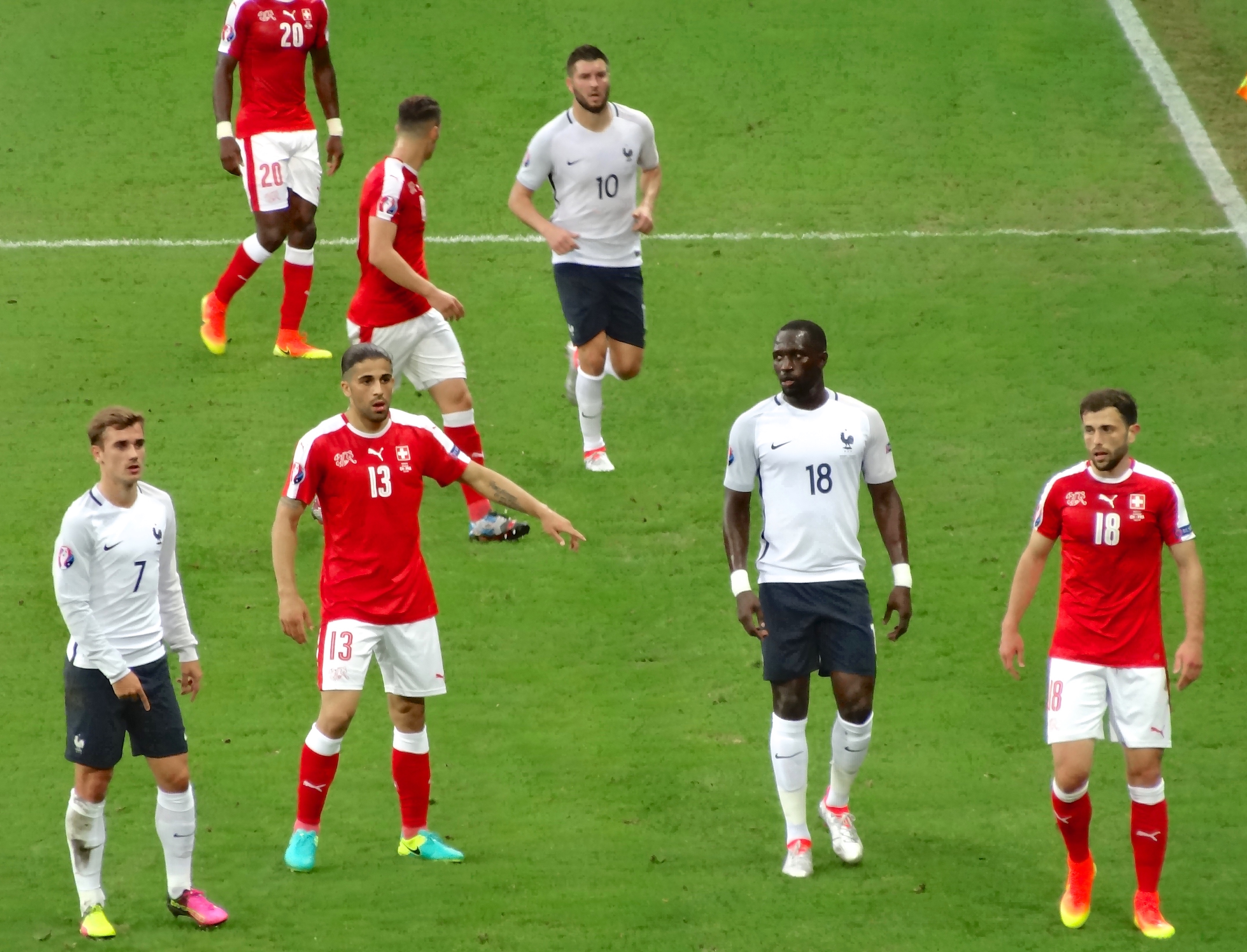
On August 3, 2009, Moussa Sissoko received his first call-up to the senior team for a 2010 FIFA World Cup qualification match against the Faroe Islands. Although he did not make his debut in that game, he was named to the senior squad again on October 6 for the team's final World Cup qualification matches against the Faroe Islands and Austria. Sissoko earned his first senior cap on October 10, appearing as a substitute for Jérémy Toulalan in the second half of the match against the Faroe Islands, which France won 5-0. With France's spot in the play-offs already secured, Sissoko made his first international start on October 14 in the match against Austria, which France won 3-1. Despite regularly featuring in the squad under manager Raymond Domenech during the 2009-10 season, Sissoko was ultimately not selected for the final squad for the 2010 FIFA World Cup.
On May 13, 2014, Sissoko was named in manager Didier Deschamps' squad for the 2014 FIFA World Cup. He made his FIFA World Cup debut on June 15, 2014, coming on as a substitute in France's 3-0 group stage victory over Honduras. In France's second match of the tournament, a thrilling 5-2 victory over Switzerland on June 20, he was named in the starting lineup and scored his first international goal.
Sissoko played a significant role in France's journey to the final of UEFA Euro 2016, making four starts in the tournament. He delivered an inspired performance in the final against Portugal, notably having two shots saved, despite France ultimately suffering a 1-0 defeat in extra time.
On May 17, 2018, he was included on the standby list for the 23-man French squad for the 2018 FIFA World Cup in Russia. Due to his inconsistent club form at the time, he was not part of the French squad that went on to win the World Cup. However, following strong club performances in the 2018-19 season, Sissoko was recalled to the national squad and played a role in France's Euro 2020 qualifiers. He made his last international appearance on June 28, 2021.
5. Style of Play
Moussa Sissoko is widely regarded as a highly versatile midfielder, capable of operating effectively in almost any midfield role and even in several other positions across the pitch. While he primarily functions as a box-to-box midfielder in the center, his attributes allow him to play in a holding midfield role, as an attacking midfielder, or on the right wing due to his notable pace and offensive capabilities. On occasion, he has also been deployed on the left flank, as a second striker, or even as an attacking full-back or wing-back.
Described as a large, fast, physically powerful, hard-working, and energetic player, Sissoko possesses the ability to cover long distances and a significant amount of ground. He is characterized as a "well-rounded central midfielder" who is "tall, rangy, and strong in the tackle." Although his consistency, passing, and technical ability have sometimes faced scrutiny in the media, he is known for a solid first touch. Over the course of his career, Sissoko has demonstrated substantial improvements in his technique and link-up play. He is particularly recognized for his direct style of play, his capacity to transition rapidly from defense to attack, and his potent runs with the ball against opposing defenses during counter-attacks. These strengths are underpinned by his strong ball-winning ability, acute positional sense, speed, dynamism, athleticism, and sheer physical power. Furthermore, Sissoko is known for his powerful striking ability from distance and while on the run with his right foot, as well as possessing an eye for goal from midfield. Regarded as a promising prospect in his youth, he was included in Don Balón's list of the 100 best young players in the world born after 1989.
6. Personal Life
Moussa Sissoko is a practicing Muslim. In addition to his native French, he is also fluent in English. He is the eldest of four children, with three younger sisters.
7. Career Statistics
7.1. Club Statistics
| Club | Season | League | National Cup | League Cup | Europe | Other | Total | |||||||
|---|---|---|---|---|---|---|---|---|---|---|---|---|---|---|
| Apps | Goals | Apps | Goals | Apps | Goals | Apps | Goals | Apps | Goals | Apps | Goals | |||
| Toulouse | 2007-08 | 30 | 1 | 1 | 1 | 1 | 0 | 2 | 0 | - | 34 | 2 | ||
| 2008-09 | 35 | 4 | 4 | 1 | 1 | 0 | - | - | 40 | 5 | ||||
| 2009-10 | 37 | 7 | 1 | 0 | 2 | 0 | 7 | 1 | - | 47 | 8 | |||
| 2010-11 | 36 | 5 | 1 | 0 | 1 | 1 | - | - | 38 | 6 | ||||
| 2011-12 | 35 | 2 | 1 | 0 | 1 | 0 | - | - | 37 | 2 | ||||
| 2012-13 | 19 | 1 | 1 | 0 | 2 | 0 | - | - | 22 | 1 | ||||
| Total | 192 | 20 | 9 | 2 | 8 | 1 | 9 | 1 | - | 218 | 24 | |||
| Newcastle United | 2012-13 | 12 | 3 | 0 | 0 | 0 | 0 | 6 | 0 | - | 18 | 3 | ||
| 2013-14 | 35 | 3 | 1 | 0 | 2 | 0 | - | - | 38 | 3 | ||||
| 2014-15 | 34 | 4 | 0 | 0 | 4 | 1 | - | - | 38 | 5 | ||||
| 2015-16 | 37 | 1 | 1 | 0 | 1 | 0 | - | - | 39 | 1 | ||||
| Total | 118 | 11 | 2 | 0 | 7 | 1 | 6 | 0 | - | 133 | 12 | |||
| Tottenham Hotspur | 2016-17 | 25 | 0 | 4 | 0 | 0 | 0 | 5 | 0 | - | 34 | 0 | ||
| 2017-18 | 33 | 1 | 6 | 0 | 2 | 1 | 6 | 0 | - | 47 | 2 | |||
| 2018-19 | 29 | 0 | 0 | 0 | 5 | 0 | 10 | 0 | - | 44 | 0 | |||
| 2019-20 | 29 | 2 | 0 | 0 | 0 | 0 | 6 | 0 | - | 35 | 2 | |||
| 2020-21 | 25 | 0 | 3 | 0 | 4 | 1 | 10 | 0 | - | 42 | 1 | |||
| Total | 141 | 3 | 13 | 0 | 11 | 2 | 37 | 0 | - | 202 | 5 | |||
| Watford | 2021-22 | 36 | 2 | 1 | 0 | 1 | 0 | - | - | 38 | 2 | |||
| Nantes | 2022-23 | 30 | 2 | 5 | 0 | - | 8 | 0 | 1 | 0 | 44 | 2 | ||
| 2023-24 | 26 | 0 | 2 | 0 | - | - | - | 28 | 0 | |||||
| Total | 56 | 2 | 7 | 0 | - | 8 | 0 | 1 | 0 | 72 | 2 | |||
| Watford | 2024-25 | 30 | 2 | 0 | 0 | 0 | 0 | - | - | 30 | 2 | |||
| Career Total | 573 | 40 | 32 | 2 | 27 | 4 | 60 | 1 | 1 | 0 | 693 | 47 | ||
7.2. International Statistics
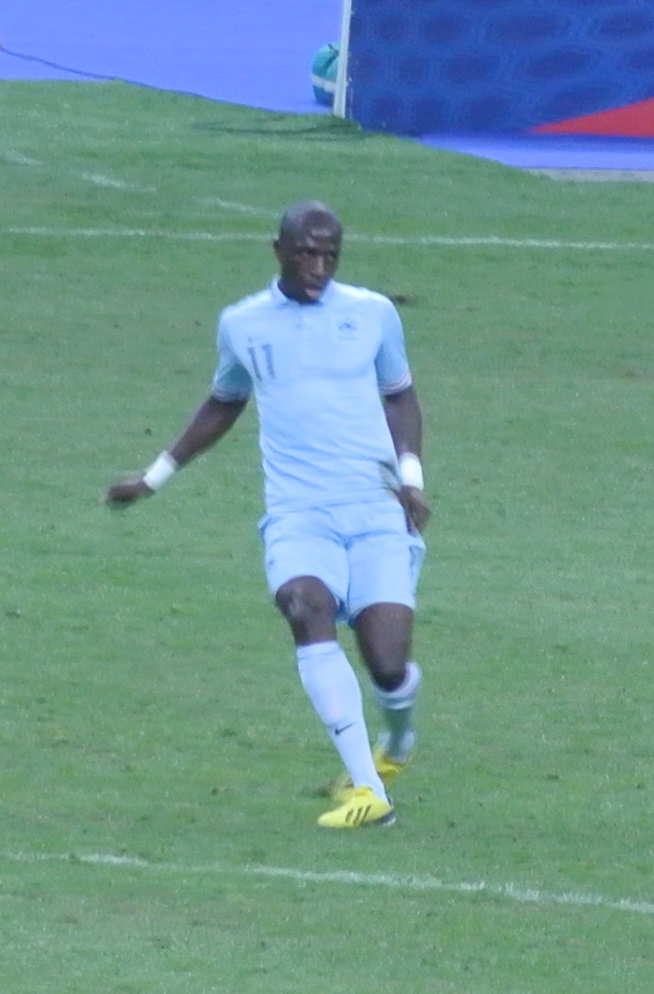
Appearances and goals for the France national football team by year.
| National team | Year | Apps | Goals |
|---|---|---|---|
| France | 2009 | 2 | 0 |
| 2010 | 1 | 0 | |
| 2012 | 3 | 0 | |
| 2013 | 7 | 0 | |
| 2014 | 14 | 1 | |
| 2015 | 7 | 0 | |
| 2016 | 16 | 0 | |
| 2017 | 3 | 1 | |
| 2018 | 2 | 0 | |
| 2019 | 7 | 0 | |
| 2020 | 3 | 0 | |
| 2021 | 6 | 0 | |
| Total | 71 | 2 | |
Goals scored by Moussa Sissoko for the France national football team:
| No. | Date | Venue | Opponent | Score | Result | Competition |
|---|---|---|---|---|---|---|
| 1 | June 20, 2014 | Itaipava Arena Fonte Nova, Salvador, Brazil | Switzerland | 5-0 | 5-2 | 2014 FIFA World Cup |
| 2 | June 2, 2017 | Roazhon Park, Rennes, France | Paraguay | 4-0 | 5-0 | Friendly |
8. Honours
Tottenham Hotspur
- EFL Cup runner-up: 2020-21
- UEFA Champions League runner-up: 2018-19
Nantes
- Coupe de France runner-up: 2022-23
France
- UEFA European Championship runner-up: 2016
Individual
- UEFA Champions League Squad of the Season: 2018-19
- Tottenham Hotspur Legends' Player of the Season: 2019

